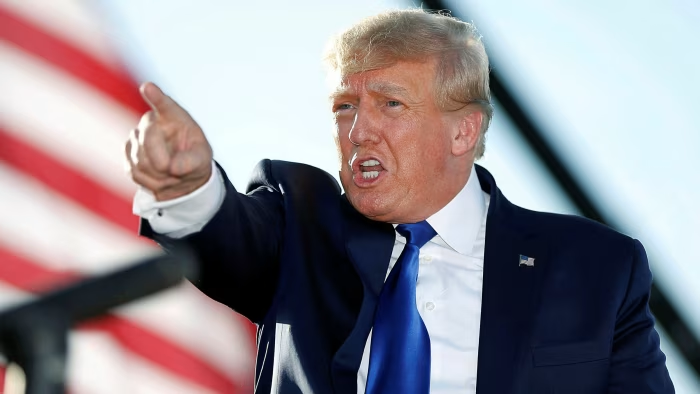Pete Hegseth says ending women peace and security program was the right call and he’d do it again

Defense Secretary Pete Hegseth announced Tuesday that he had begun winding down a Pentagon initiative aimed at promoting women’s involvement in peacebuilding and conflict resolution—despite the fact that it originated under a Republican-led law signed by then-President Donald Trump during his first term.
“This morning, I proudly ENDED the ‘Women, Peace & Security’ (WPS) program inside the [Defense Department],” Hegseth wrote in a post on X.
Labeling the initiative as just another example of what he calls “woke” policy, Hegseth dismissed WPS as a “yet another woke divisive/social justice/Biden initiative that overburdens our commanders and troops — distracting from our core task: WAR-FIGHTING.”
He went even further, describing the program as a “UNITED NATIONS program pushed by feminists and left-wing activists,” and claimed, without evidence, that “troops HATE it.”
Though the WPS initiative is grounded in federal law—meaning Hegseth cannot simply scrap it unilaterally—he stated the Pentagon would fulfill only the legal minimum and that he intends to push for its full repeal in upcoming budget discussions.
The decision is striking given that Trump himself approved the initiative in 2017, with the bill having been supported by several current members of his administration back when they were in Congress.
The bipartisan Women, Peace and Security Act was written by Kristi Noem—now Homeland Security Secretary—while she served as a representative for South Dakota, alongside Rep. Jan Schakowsky (D-Ill.).
The Senate counterpart was co-sponsored by current Secretary of State Marco Rubio, who was a senator from Florida at the time. Rubio recently praised the WPS law, saying it was “the first law passed by any country in the world focused on protecting women and promoting their participation in society.”
Trump’s current national security adviser, Mike Waltz, a former Florida congressman, was also a founding member of the WPS Caucus during his tenure in the House.
In fact, Trump’s own campaign once touted the Women, Peace and Security initiative as one of his signature achievements for women during his first presidential term.
The statute was meant to ensure that women had a seat at the table when it came to global conflict prevention, management, and peace-building—mandating implementation across key agencies including the State Department and Department of Defense.
After President Biden took office, the administration released a series of action plans outlining how the Pentagon would carry out the law’s directives, with the most recent update issued last December.
Hegseth, however, insists the Biden administration took things too far.
He argued the current White House had “distorted & weaponized the straight-forward & security-focused WPS initiative launched in 2017,” although he provided no concrete examples of how it had been misused.
Democrats wasted no time condemning the move.
Senator Jeanne Shaheen (D-N.H.), a senior member of the Senate Armed Services Committee who played a major role in shepherding the bipartisan law through Congress, criticized Hegseth sharply.
“Every combatant commander who comes through my office highlights the strategic advantage WPS gives U.S. forward deployed forces,” she said in a statement.
“This follows a dangerous and disturbing pattern from the Secretary, who clearly does not listen to advice from senior military leaders. He also continues to ignore the invaluable role women play in our national security. It’s startling that just because the word ‘women’ is in the title, this evidence-based security program has been reduced to a DEI program,” Shaheen added.
Rep. Lois Frankel (D-Fla.), who serves as co-chair of the WPS Caucus, didn’t hold back either.
“The Women, Peace, and Security (WPS) initiative isn’t ‘woke’—it’s smart, strategic policy grounded in decades of research and bipartisan law, signed by President Trump in 2017,” Frankel said in a statement. “Dismissing WPS as a ‘UN feminist plot’ is not just ignorant—it’s dangerous. It denies the reality on the ground, ignores our own defense and diplomatic priorities, and weakens our national security.”
Since stepping into the role, Hegseth has led a sweeping rollback of diversity, equity, and inclusion efforts within the military. He’s eliminated identity-based commemorations like Black History Month, pulled numerous titles from the Naval Academy—including books on the Holocaust and civil rights—and ordered military libraries to flag materials related to DEI.



